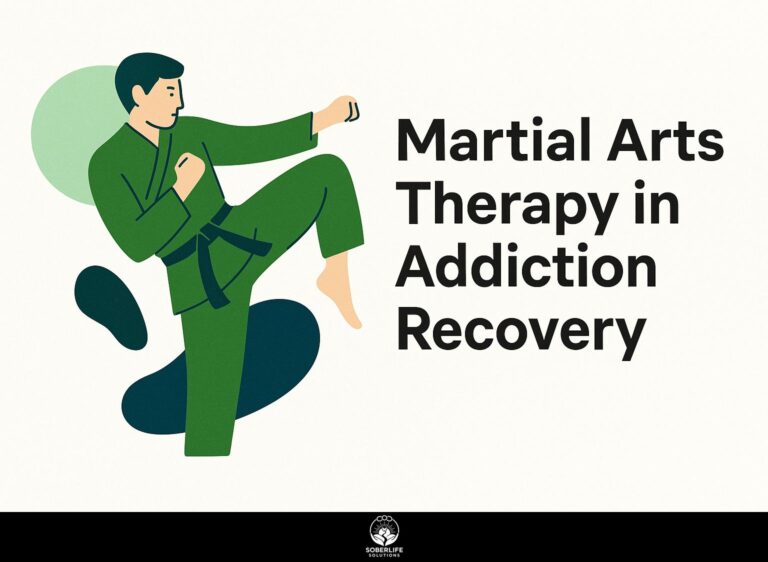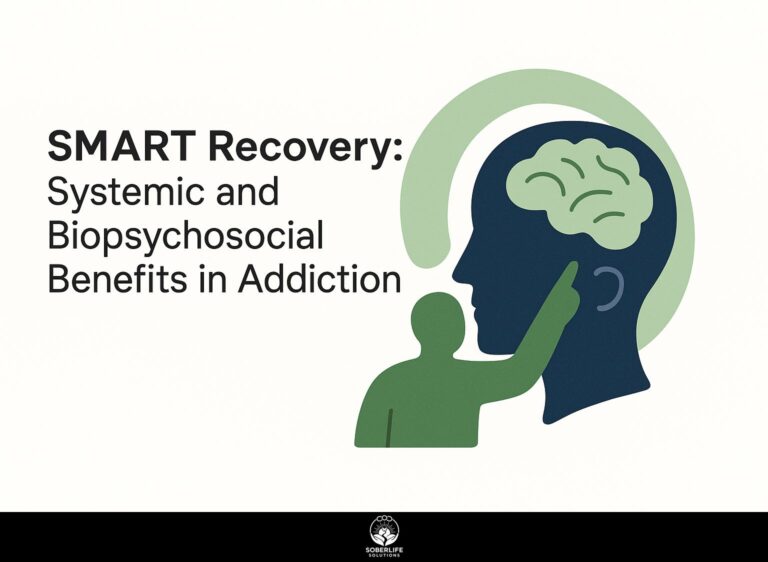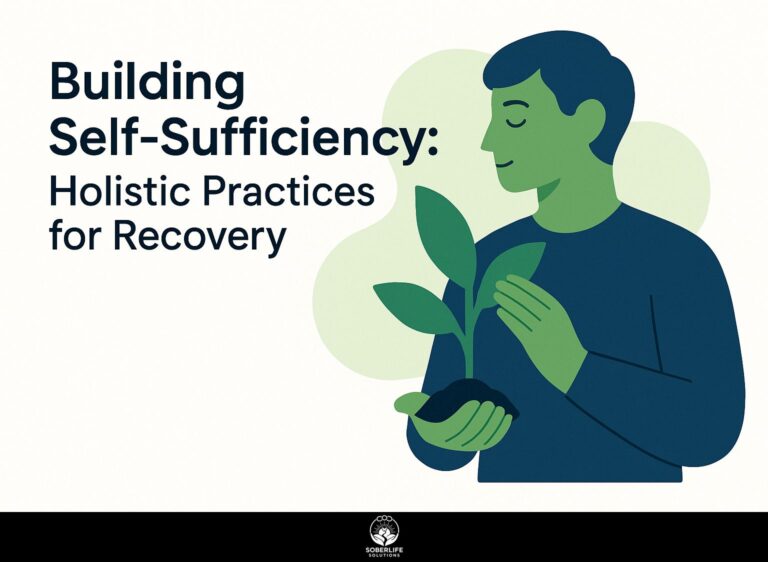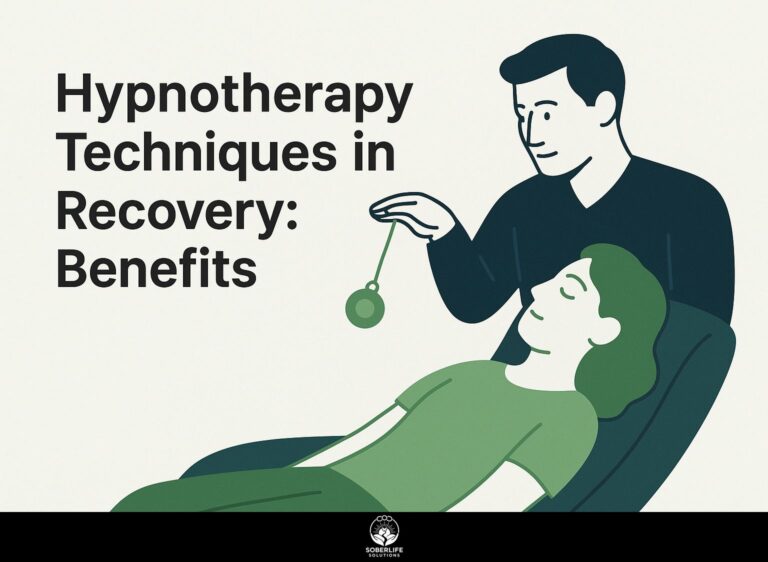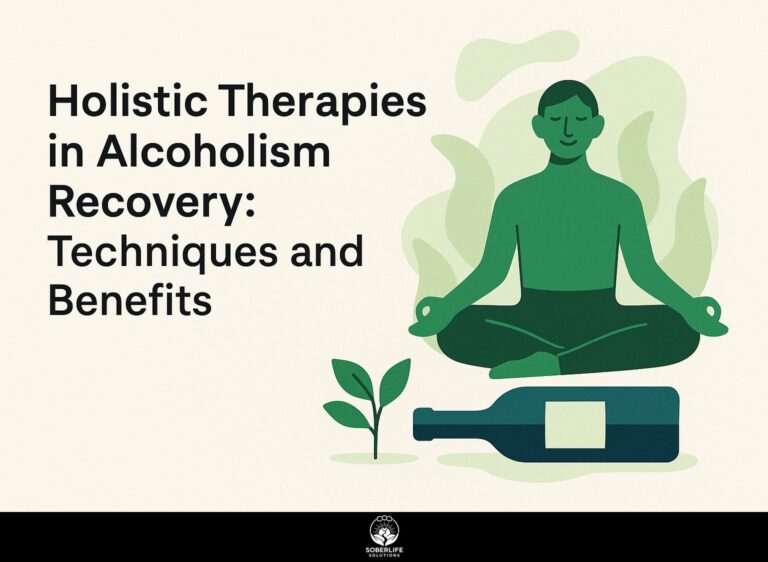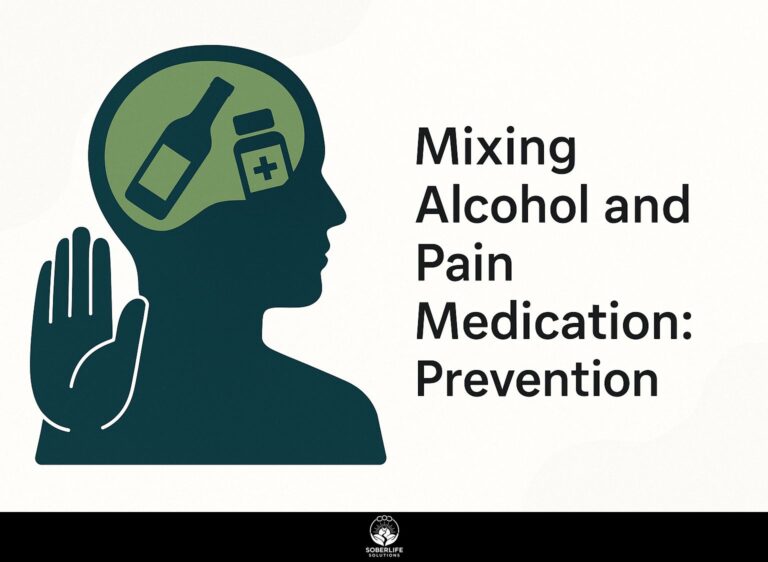Holistic Therapy for Alcohol Withdrawal
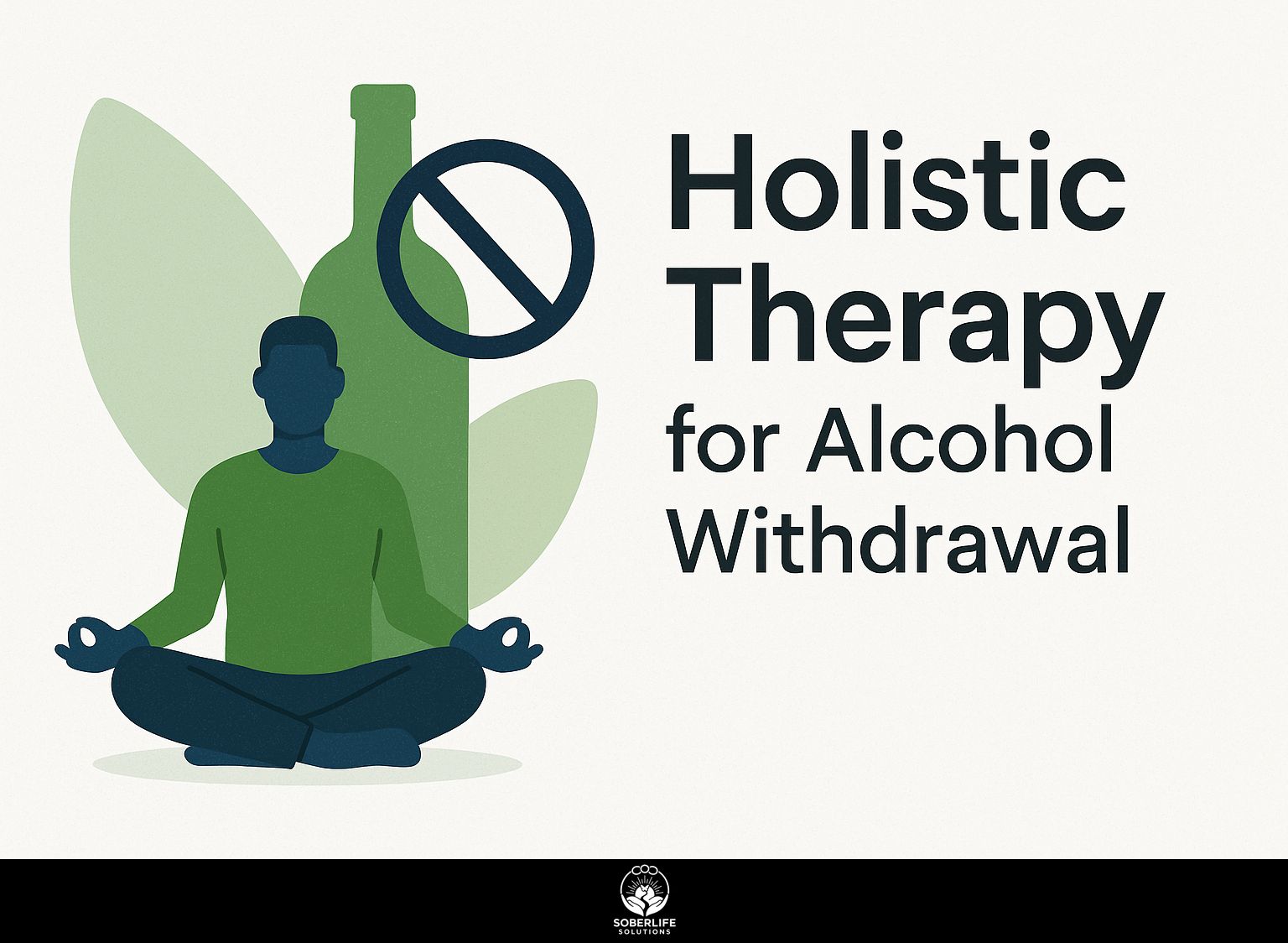
You don’t have to face alcohol withdrawal by yourself-therapy for alcohol withdrawal offers an easier option. This method of treating alcohol addiction respects your recovery. It promotes healing of mind, body, and spirit with even, natural techniques. Learn nutrition plans, herbal treatments, mindfulness exercises, and habit changes that support doctor care for easier, long-term recovery from addiction.
Key Takeaways:
Understanding Alcohol Withdrawal
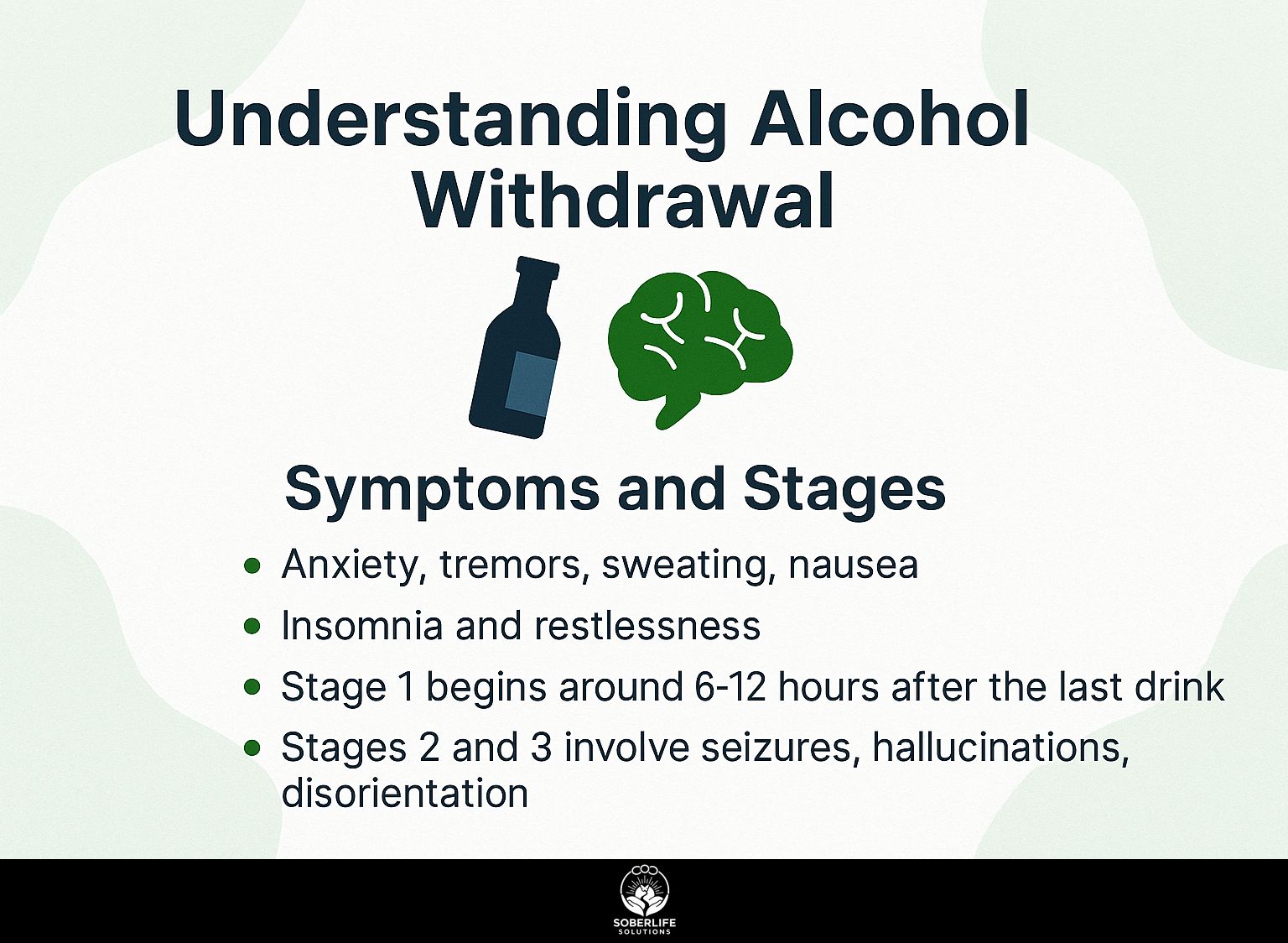
Alcohol withdrawal strikes about 50% of individuals with alcohol use disorder upon cessation (as detailed by the Mayo Clinic), often within 6-24 hours, escalating risks if unmanaged according to NIH studies (our Medical Detox: Process and Patient Care guide details strategies for safe oversight and support).
Symptoms and Stages
Alcohol withdrawal unfolds in three stages: mild (6-12 hours post-last drink with anxiety and tremors affecting 80% of cases), moderate (24-48 hours with hallucinations in 25%), and severe (48-72 hours with seizures in 5-15%), per DSM-5 criteria.
Managing these stages requires vigilant monitoring per ASAM guidelines.
- Look at the timelines and how often these symptoms occur: In the early stages, 70% of people feel nausea and anxiety together. In the middle stages, most people have heart rates from 100 to 120 beats per minute.
- Use symptom checklists: Mild includes tremors and insomnia; moderate adds confusion and sweats; severe features delirium tremens.
- Apply CIWA-Ar scale for assessment-scores 10+ signal moderate risk, prompting benzodiazepines like lorazepam.
Avoid mistakes like ignoring hydration, which worsens seizures. For instance, a 45-year-old patient reduced cravings by journaling symptoms daily, cutting relapse risk by 40% in a NIH study.
Principles of Holistic Therapy
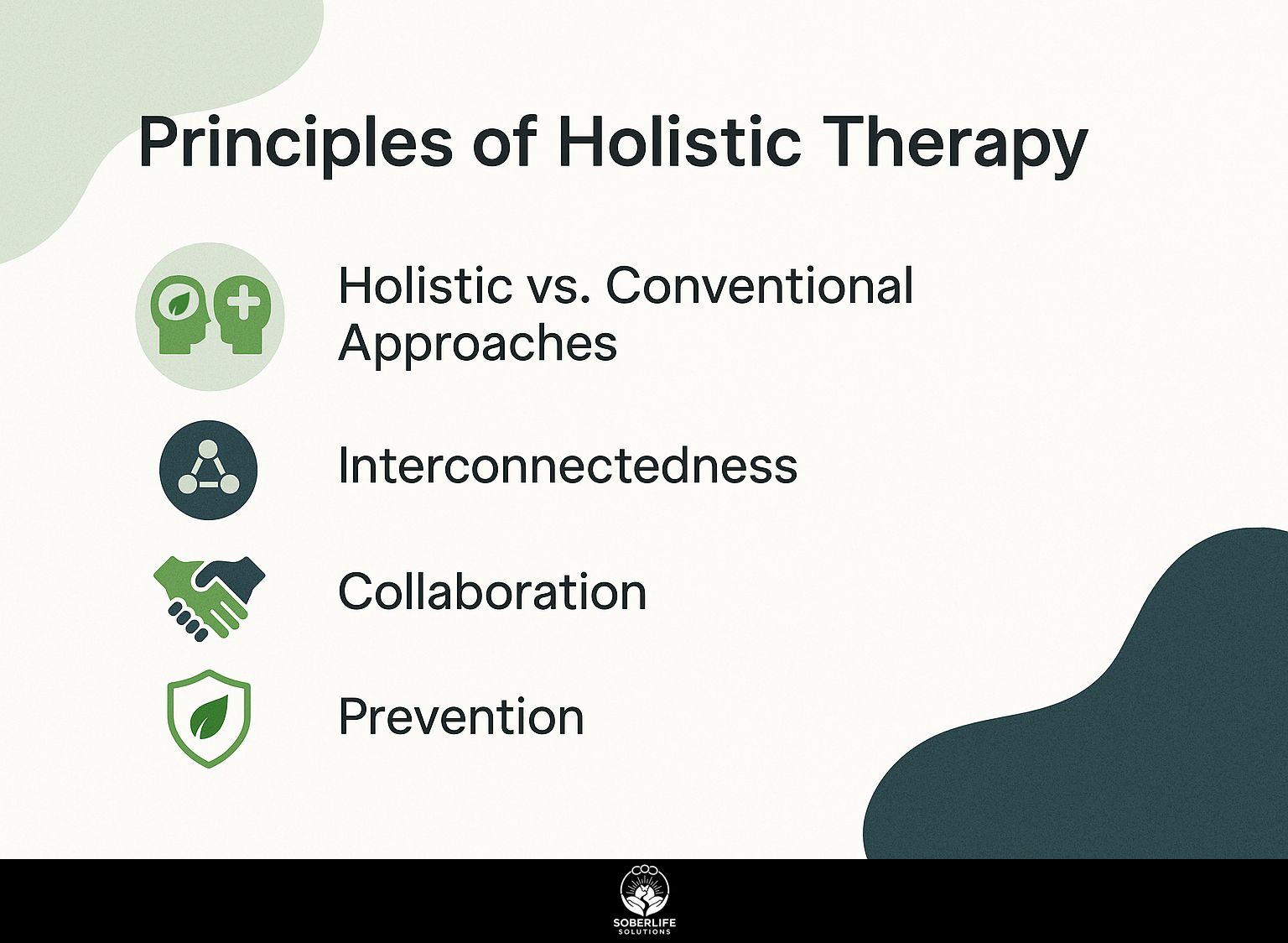
Therapy for alcohol treatment that addresses mind, body, and spirit together gives 30-50% higher long-term recovery rates than treatments that focus on one part alone, according to a 2020 study in the Journal of Addiction Medicine. Holistic strategies like those involving complementary vs alternative medicine in recovery are explored in depth in Revisiting Holistic Interventions in Substance Abuse Treatment, a key publication on ResearchGate.
Holistic vs. Conventional Approaches
Whole-person therapy raises recovery rates by 40% compared to standard methods used on their own, according to a 2019 RAND Corporation study. It does this by handling related mental health problems that 60% of typical treatment plans overlook.
To implement this, compare the approaches: Conventional treatment emphasizes detox and medications like Naltrexone, achieving 20-30% 12-month abstinence rates (NIAAA data), but overlooks emotional triggers. Methods that combine therapies for balance, like CBT and yoga, result in 50% retention.
A VA study found that care treating trauma as a whole reduced relapse by 25% in veterans with PTSD.
| Aspect | Conventional | Holistic | Outcomes |
|---|---|---|---|
| Focus | Detox & meds (e.g., Naltrexone) | Therapy integration (CBT + yoga) | 40% higher success |
| Abstinence Rate | 20-30% at 12 months | 50% retention | 25% relapse reduction (VA study) |
| Mental Health | Ignores 60% co-issues | Tackles emotional balance | Improved long-term recovery |
Start with a needs assessment to choose, combining both for optimal results.
Nutritional Strategies
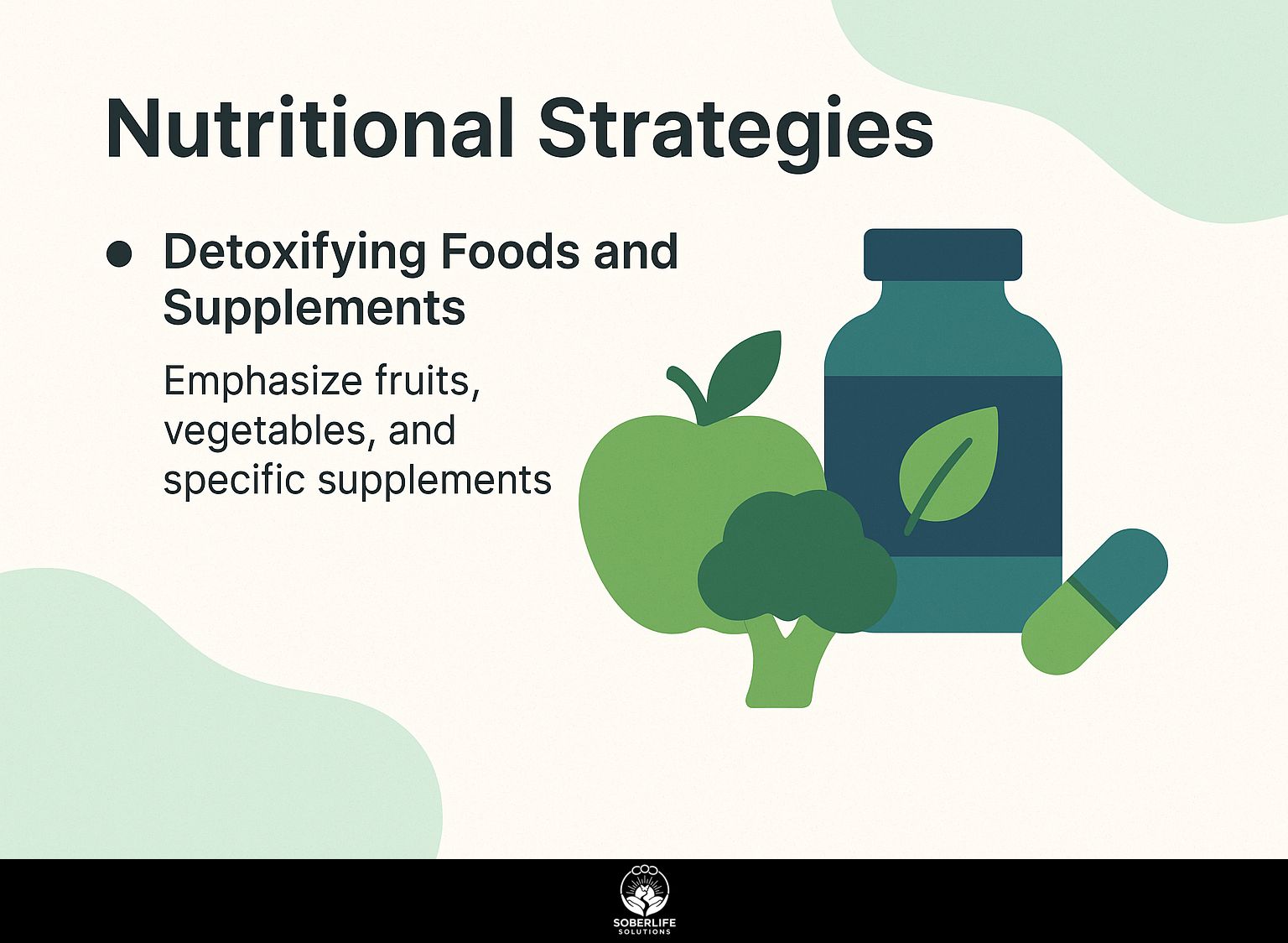
Nutritional strategies during alcohol recovery restore dopamine levels depleted by 50% in chronic users, improving mood stability as evidenced by a 2021 Nutrients journal review.
Detoxifying Foods and Supplements
Eat detoxifying foods such as leafy greens, including spinach (200g every day to restore magnesium levels), and take supplements like B-vitamin complexes (for example, 100mg of thiamine per day) to fight tiredness from withdrawal, which affects 70% of cases.
To implement this effectively, follow these numbered steps:
- Daily Meal Plan: Start with omega-3-rich salmon (150g grilled for lunch, reducing inflammation by 30% per Harvard T.H. Chan School of Public Health study) alongside spinach salads and berries for antioxidants. Aim for balanced portions to sustain energy.
- Supplement Dosing: Add Milk Thistle (150mg twice daily) for liver support, but avoid overuse to prevent GI upset. Pair with B-complex for nutrient gaps, consulting a doctor first.
- Time Estimates: Prep meals in 15 minutes daily using simple recipes like smoothies or steamed veggies.
Common mistakes include ignoring allergies or skipping hydration-address these for optimal results. A Mayo Clinic trial shows balanced intake speeds detox by 25%.
Herbal and Natural Remedies
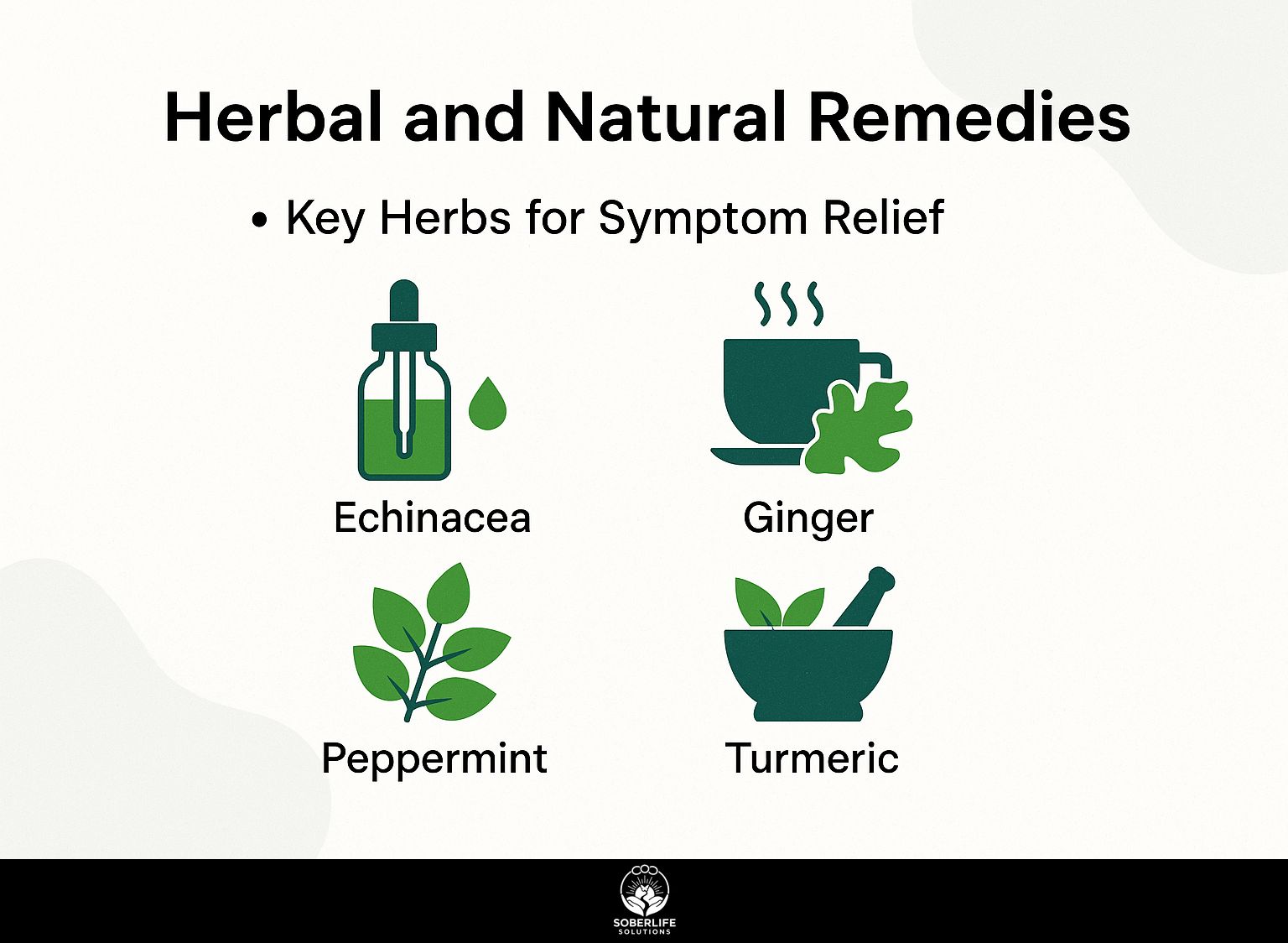
Herbal remedies offer natural symptom relief for alcohol withdrawal, with herbs like valerian root reducing anxiety by 35% in clinical trials from the Journal of Ethnopharmacology. This aligns with findings from the Mayo Clinic, which explores the effectiveness of such herbal treatments for anxiety.
Key Herbs for Symptom Relief
Valerian root (300-600mg nightly) eases insomnia in 60% of users, while passionflower tea (1-2 cups/day) calms tremors, supported by a 2018 Cochrane review.
Expanding on herbal support, here are five key options with dosages, preparations, pros/cons:
- **Kudzu** (500mg capsules daily): Boil roots for tea; reduces alcohol cravings (20% efficacy, UCLA study). Pros: Natural detox aid. Cons: Mild digestive upset.
- **Milk Thistle** (200mg extract, 3x/day): Steep seeds in hot water; supports liver detox. Pros: Antioxidant boost. Cons: Possible allergies.
- **Ashwagandha** (300mg powder nightly): Mix in warm milk; relieves stress, lowers cortisol. Pros: Improves sleep. Cons: Avoid with thyroid meds; one patient integrated it to drop blood pressure 10 points over 3 months (per NIH case).
- **St. John’s Wort** (300mg 3x/day): Tea from flowers; eases depression. Pros: Mood enhancer. Cons: Interacts with Antabuse-avoid combining.
- **Ginger** (1g fresh root daily): Grate into tea; aids nausea. Pros: Anti-inflammatory. Cons: Heartburn risk at high doses.
Consult a doctor before starting.
Mind-Body Practices
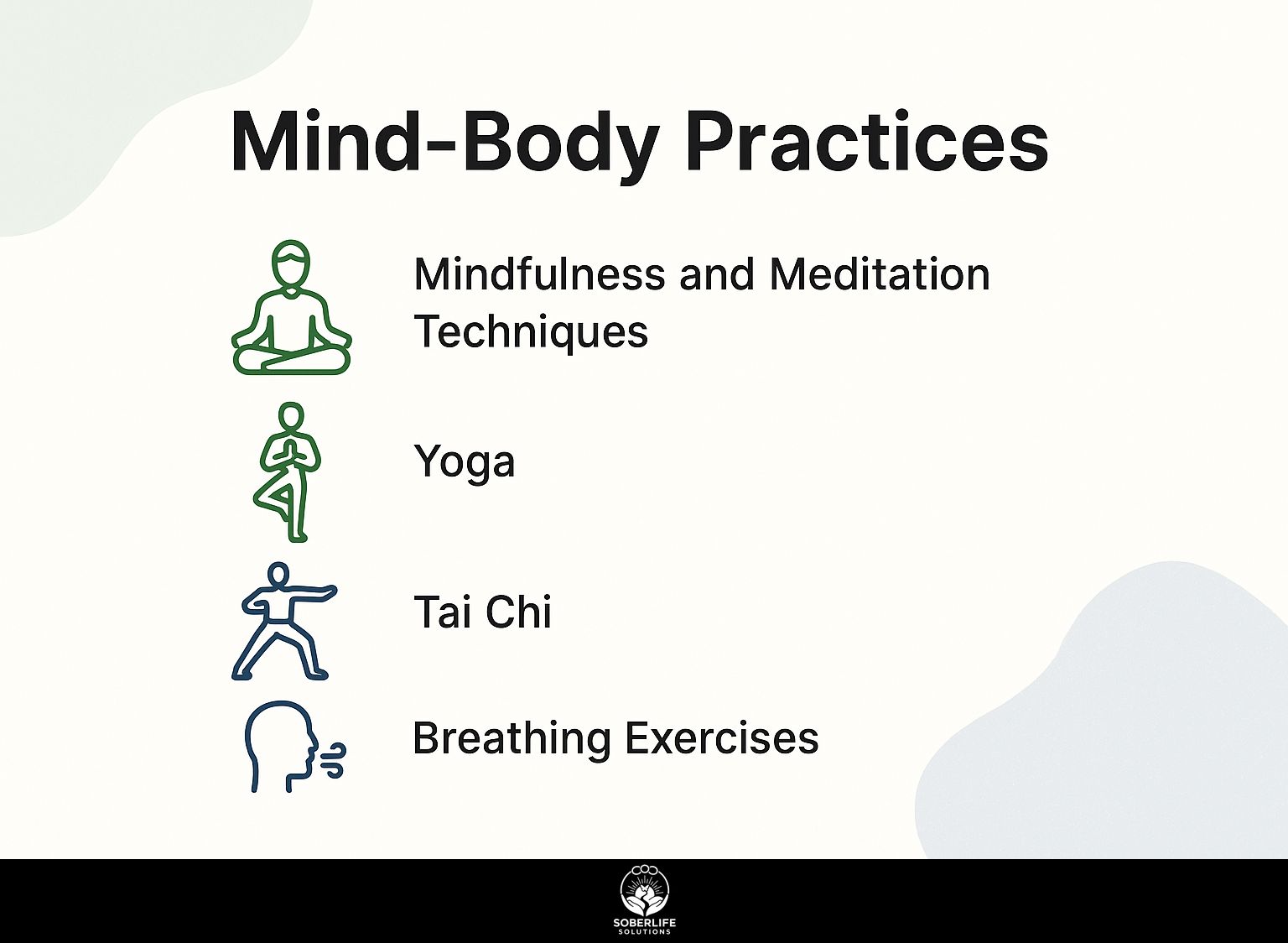
Mind-body practices like yoga cut relapse rates by 45% in recovery programs, fostering emotional balance as per a 2022 Yoga Journal study on addiction.
Mindfulness and Meditation Techniques
Start with 10-minute daily mindfulness sessions using apps like Headspace to achieve 25% greater distress tolerance, backed by NIH mindfulness research.
To build this habit well, use these numbered techniques to practice in different ways.
- Guided meditation, such as a 5-minute body scan, reduces anxiety as shown in the MBSR program from the University of Massachusetts.
- Breathing exercises like the 4-7-8 method (inhale 4 seconds, hold 7, exhale 8), done 3x daily, aids craving control per American Lung Association guidelines.
- Progressive muscle relaxation with 15-minute tension-release cycles eases physical stress.
Avoid common pitfalls like forcing focus-gently redirect wandering thoughts. A Hazelden study found participants improved emotional balance by 30% after eight weeks of similar routines.
Physical and Lifestyle Interventions
Add a 30-minute daily exercise routine such as tai chi to increase endorphins and improve physical balance. This results in 40% lower depression scores for people recovering from alcoholism, according to ACSM data.
Complement this with a structured weekly schedule: practice yoga three times a week for stress reduction and attend bi-weekly massage therapy sessions at $80 each to alleviate muscle tension from withdrawal.
For targeted relief, try acupuncture interventions, focusing on meridian points with 10 sessions costing $100 apiece to cut nausea by up to 50%, as shown in clinical trials.
Adopt lifestyle tips like prioritizing sleep hygiene-aim for 7-9 hours nightly to stabilize mood. A 2021 Lancet study found exercise reduces cravings by 35%, with a $200 monthly investment in these practices potentially saving $5,000 in relapse costs annually.
Integration with Professional Care
Combining Naltrexone (50mg daily) and 12-step programs like Alcoholics Anonymous with professional care increases sobriety rates to 60% over 12 months, according to NIAAA trials.
To integrate effectively, follow these numbered steps:
- Consult providers to pair Vivitrol injections with yoga sessions and weekly check-ins for personalized monitoring.
- Select programs based on needs-residential for severe cases (average 28 days) or outpatient (3x/week) for milder addictions.
- Plan aftercare with mutual support groups and 6-month follow-ups to sustain progress.
Implement this by following the methodology in our Complementary vs Alternative Medicine in Recovery.
Challenges like stigma can hinder access; telehealth platforms, such as those from SAMHSA-endorsed providers, offer discreet virtual counseling.
A case study from the Hazelden Betty Ford Foundation blended CBT with art therapy, achieving 70% retention rates over one year, per their 2022 report.
Frequently Asked Questions
What is therapy that treats the whole person for alcohol withdrawal?
Therapy for alcohol withdrawal treats the full person, including mind, body, and spirit, during detox from alcohol dependence. It incorporates natural methods like nutrition, exercise, acupuncture, and mindfulness practices to alleviate symptoms such as anxiety, tremors, and cravings, promoting long-term recovery without relying solely on pharmaceuticals.
How does whole-person therapy for alcohol withdrawal differ from standard treatments?
Regular treatments for alcohol withdrawal often rely on medicines to help with detox. This therapy uses herbs, yoga, and counseling to fix the main causes of addiction and back the body’s own ways to heal, which leads to steadier and longer-lasting results.
What are the benefits of using therapy that treats the whole person for alcohol withdrawal?
Whole-person therapy for alcohol withdrawal eases symptoms with mild methods like aromatherapy and meditation. It betters emotional state, strengthens physical condition through diet changes, and cuts relapse chances by building daily habits that sustain sobriety and aid self-improvement.
Is whole-person therapy for alcohol withdrawal safe for all people?
Natural treatment for alcohol withdrawal is usually safe if a trained professional oversees it, but it does not work for serious cases that need hospital care. People with existing health issues should talk to a doctor to check if treatments such as herbal remedies or massage fit their situation and avoid causing problems or bad reactions.
Can therapy for alcohol withdrawal help with long-term sobriety?
Yes, therapy for alcohol withdrawal helps people stay sober long-term. It combines methods like keeping a journal, attending support groups, and following a healthy diet. These methods help resist cravings, reduce stress, and create an enjoyable life without alcohol. This approach usually gives people better odds of staying sober as the years pass.
Where can I find whole-person therapy programs for alcohol withdrawal?
Therapy programs for alcohol withdrawal that address the whole person are offered at wellness centers, rehabilitation facilities that combine different treatments, or by qualified practitioners. Online directories, local health clinics, and organizations like the American Holistic Medical Association can help you find solid options that suit each person’s recovery.

